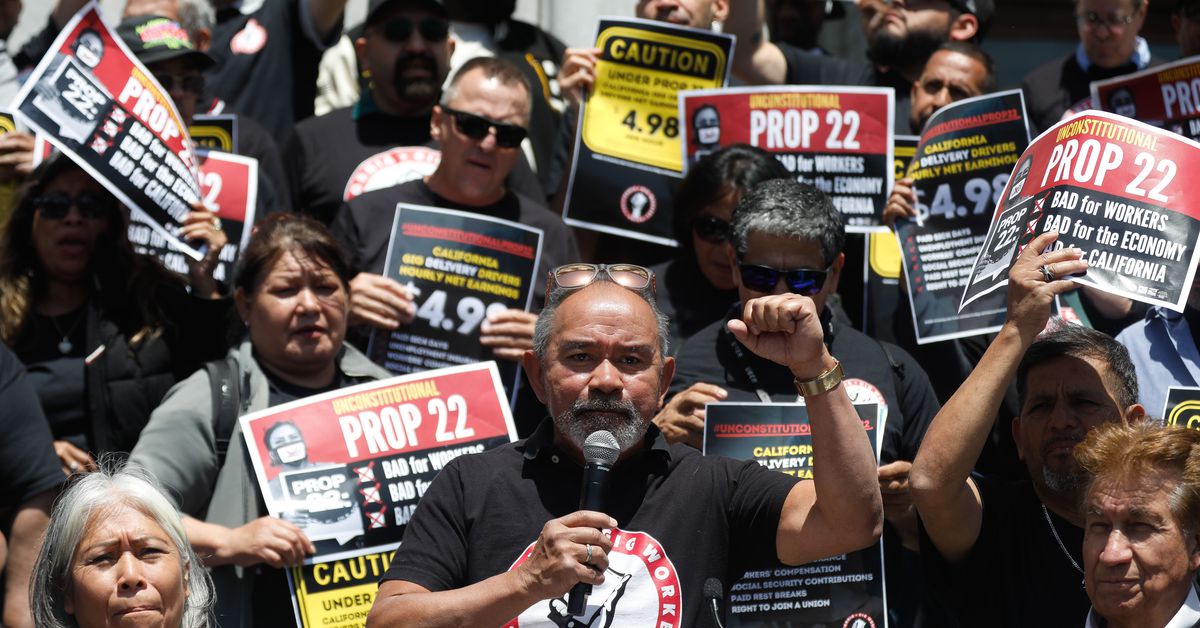/cdn.vox-cdn.com/uploads/chorus_asset/file/25546022/2153510997.jpg)
While Prop 22 guarantees workers some protections, such as 120 percent of the local minimum wage for each hour spent driving, a health insurance stipend, and reimbursement for job-related injuries, it’s far from the full range of benefits Uber, Lyft, DoorDash, Instacart, and other services would’ve had to provide if workers were classified as employees.
Uber, Lyft, and DoorDash have all issued responses in support of the court’s decision. “From the moment it became law, Prop 22 has been working for the millions of drivers and couriers that earn on platforms like ours,” Uber writes in a post on its website. “Uber alone has delivered more than $1 billion in direct benefits to date.”
Opponents of Prop 22 are frustrated with the outcome. “We are deeply disappointed that the state Supreme Court has allowed tech corporations to buy their way out of basic labor laws despite Proposition 22’s inconsistencies with our state constitution,” Lorena Gonzalez, the president of the California Federation of Labor Unions, says in a statement posted online. “These companies have upended our social contract, forcing workers and the public to take on the inherent risk created by this work, while they profit.”
Other locations, such as Massachusetts, Minneapolis, and New York City, have established some protection for Uber, Lyft, and DoorDash drivers, but they’re still classified as contractors.
Services Marketplace – Listings, Bookings & Reviews
